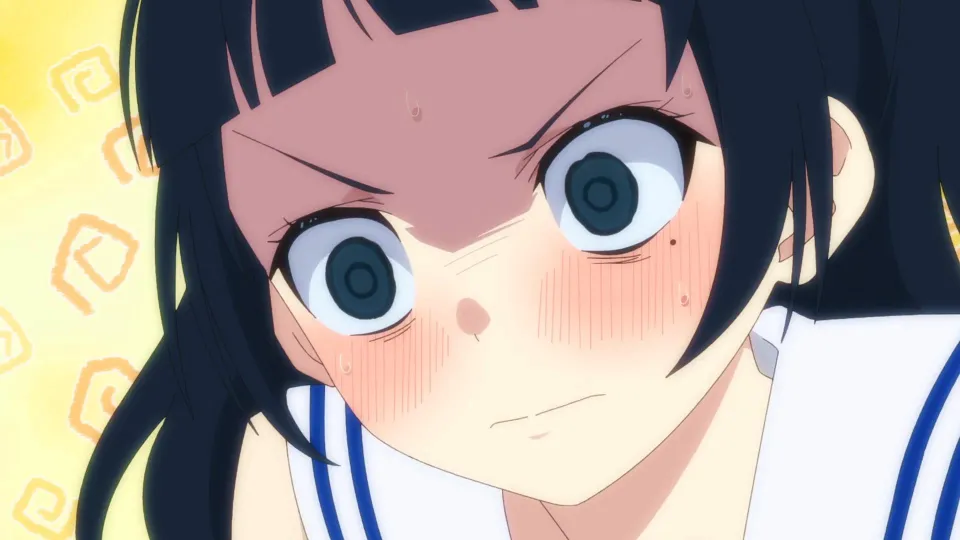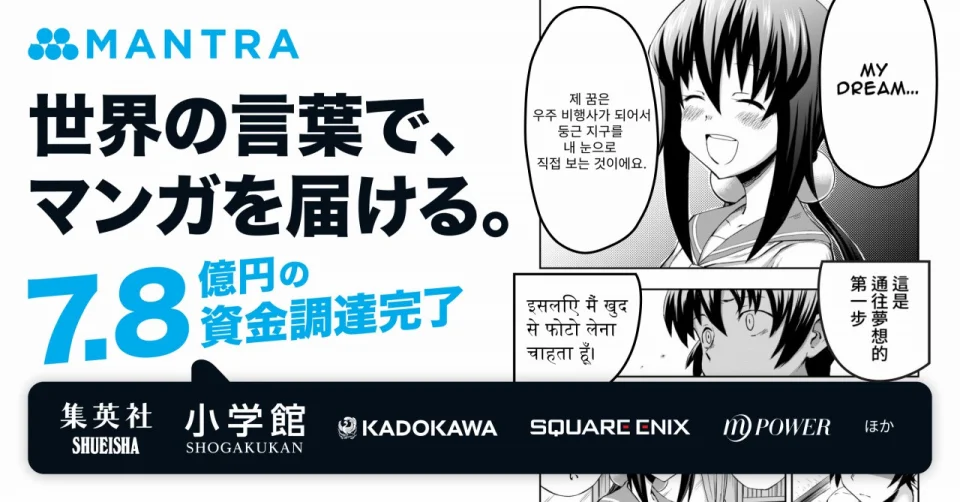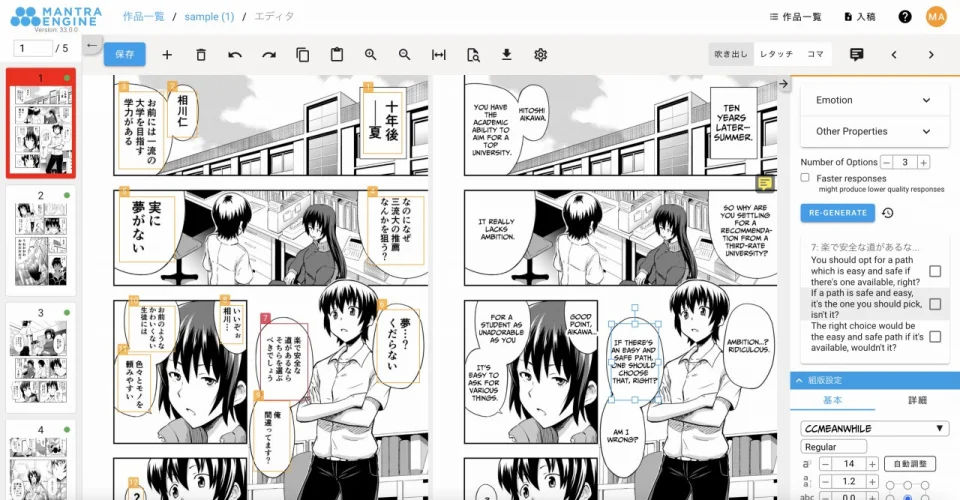The era of AI-translated manga begins

Mantra, a company engaged in the research and development of manga translation technology using artificial intelligence (AI), has secured significant funding of approximately 7.8 billion yen. Investors include major names in the industry such as Shueisha, Shogakukan, KADOKAWA, Square Enix Holdings, and MPower Partners Fund L.P., as well as Tetsuryokukai founder Tsuyoshi Hamagaki.
Mantra Engine, Mantra's cloud translation tool, specializes in vertically scrolling manga and comics. This platform allows you to perform all manga translation tasks directly in the browser, using AI to make the process more efficient and reduce work time by half. Currently, Mantra Engine is used in both national and international publishers and translation companies, translating around 10,000 pages monthly, equivalent to about 500 volumes of manga.

Mantra Engine has proven its ability to improve efficiency in translating manga into multiple languages, with notable projects such as:
- Shogakukan: 'Omega Kengan', 'Kengan Ashura' (English)
- Shueisha: 'One Piece', 'Spy x Family' (Vietnamese), 'Bye Bye Bye', 'Basashi ga Tabetai (I'm So Hungry I Could Eat Basashi)' (English)
- Bushiroad Works: 'Mahoutsukai no Yome (The Ancient Magus' Bride)', 'Ghost and Witch'
Manga translation presents several challenges due to the irregular arrangement of text and images, the use of unique colloquial language, and the complex context of the stories. To overcome these challenges, Mantra has integrated image recognition and machine translation technologies to achieve high accuracy in manga translation. These advances have been recognized at international AI conferences such as AAAI and by associations such as the Asia-Pacific Association for Machine Translation, which awarded them the AAMT Nagao award.
From here, the following benefits were listed for this new technology:
- Accurate context-based translation: The combination of image recognition technologies and large-scale language models allows AI to consider character and plot information when translating.
- Consistency in translation: By considering longer contexts than traditional machine translations, a consistency in the style and tone of the characters is achieved throughout the work.
- Multilingual Support: Currently, Mantra Engine supports Japanese, English, Traditional and Simplified Chinese, Korean, Vietnamese, and Portuguese, with plans to further expand the available languages.
The use of AI in manga translation has significant implications for human translators. On the one hand, AI can reduce the workload, allowing translators to focus on more complex and creative tasks, such as cultural localization and adapting dialogues. On the other hand, there is a risk of job displacement for translators who do not adapt to new technologies, although opportunities also open up for those who master the use of these advanced tools.

For consumers, incorporating AI into manga translation can result in faster accessibility and in multiple languages. This means that manga fans around the world will be able to enjoy their favorite series almost simultaneously with their release in Japan, eliminating long waits and inevitably affecting piracy.
In short, AI translation technology, such as that developed by Mantra, is transforming the manga industry, offering significant advantages for both translators and consumers. The key will be how professionals in the sector adapt to this new tool and how the transition to closer collaboration between humans and machines in the field of translation is managed.
Source: Anime Recorder

